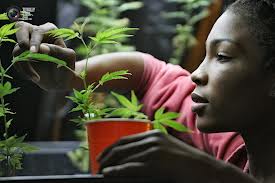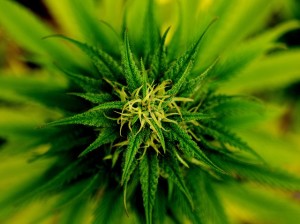 With each state that legalizes marijuana use, opponents express their concern that it will lead to a spike in drug abuse and crime. Cannabis activists, on the other hand, continue to proclaim the benefits of legalizing marijuana. So, who is right? Or do both sides have a valid point? Will legalization hurt America’s youth by increasing drug and alcohol abuse in young people?
With each state that legalizes marijuana use, opponents express their concern that it will lead to a spike in drug abuse and crime. Cannabis activists, on the other hand, continue to proclaim the benefits of legalizing marijuana. So, who is right? Or do both sides have a valid point? Will legalization hurt America’s youth by increasing drug and alcohol abuse in young people?
A new working paper by researchers from the Consumer Financial Protection Bureau, Harvard University and Western California University shed some light on this issue. According to this study, liberalized marijuana laws have little positive or negative impact. The findings of this paper – distributed by the National Bureau of Economic Research – are based on annual surveys of high-school seniors. This ongoing study of American youth began in 1975.
However, other researchers have identified certain facts and statistics that involve both positive and negative effects. Some of the positive effects of more liberal marijuana laws include:
- They appear to have reduced the use of cocaine and heroin among teens.
- Regulation of marijuana has made drugs (e.g. salvia) and other narcotics appear riskier.
- Where marijuana laws were liberalized, teens reported fewer days of illness and less fighting.
- Studies have revealed that marijuana and its derivatives (such as the compound cannabidiol) are effective in treating epilepsy, chronic pain and nausea associated with chemotherapy, among other conditions.
Some of the less positive results include:
- Marijuana liberalization was correlated with an increase in the ease of procuring psychedelic drugs, and barbiturates.
- Looser cannabis laws have been associated with an increase in petty crimes like shoplifting.
- Other statistics have shown that marijuana legalization has led to a higher number of traffic fatalities and hospitalizations.
At present, the marijuana industry is stuck in a tug of war. The beginning of September, the U.S. house rules committee blocked an amendment that would protect medical marijuana patients. To complicate matters further for the industry, Attorney General Jeff Sessions has indicated a willingness to go after businesses and individuals involved in the industry – in states where cannabis is legal for medical and/or recreational use.
This month, Sen. Orrin Hatch, R-Utah announced his plans to introduce a bill that would remove barriers that are currently preventing further research on medical marijuana. In addition, a group of senators introduced another bill that would end federal prohibition of medical marijuana.
Amidst this struggle, marijuana merchants are dealing with their own set of obstacles. Under strict federal regulations, merchants are unable to secure processing and funding from banks and other traditional financial institutions. Trying to avoid the danger of operating in cash only, many merchants turn to an alternative provider like Marijuana Merchant Account (MMA). In as little as 24 hours, these business owners can secure the medical marijuana merchant account they need to process debit and credit card transactions, accept e-checks (online and by phone) and obtain business funding.


 As Arizona,
As Arizona,  We all know what happens to pot itself when it is legalized. There are high taxes placed on it, and there are quality-control regimens that are put into place, to ensure safety and purity. No one argues against quality and purity – and most of us can argue against higher taxes – but what does the legalization do to pot smokers? Will they pay more for quality, or will they stick with their illegally obtained green that is cheaper and has somewhat questionable quality?
We all know what happens to pot itself when it is legalized. There are high taxes placed on it, and there are quality-control regimens that are put into place, to ensure safety and purity. No one argues against quality and purity – and most of us can argue against higher taxes – but what does the legalization do to pot smokers? Will they pay more for quality, or will they stick with their illegally obtained green that is cheaper and has somewhat questionable quality?
 It has been 20 years since Californians approved Proposition 215, the medical marijuana policy that allows for growth and distribution of the drug to designated patients. Since then, the growth and distribution of medical marijuana has been controlled by local entities. But it was only last year that the state approved the Medical Marijuana Regulation and Safety Act, a group of bills that attempts to regulate medical marijuana on a state level. The act seeks to control the cultivation, manufacturing and licensing of medical marijuana, but maintains local government’s sovereignty over marijuana businesses, cultivation, and delivery. But an erroneous deadline in the bill allows local governments to ban medical pot cultivation, dispensaries, and mobile delivery. This has made many patients who have depended on the drug for treatment nervous.
It has been 20 years since Californians approved Proposition 215, the medical marijuana policy that allows for growth and distribution of the drug to designated patients. Since then, the growth and distribution of medical marijuana has been controlled by local entities. But it was only last year that the state approved the Medical Marijuana Regulation and Safety Act, a group of bills that attempts to regulate medical marijuana on a state level. The act seeks to control the cultivation, manufacturing and licensing of medical marijuana, but maintains local government’s sovereignty over marijuana businesses, cultivation, and delivery. But an erroneous deadline in the bill allows local governments to ban medical pot cultivation, dispensaries, and mobile delivery. This has made many patients who have depended on the drug for treatment nervous.




